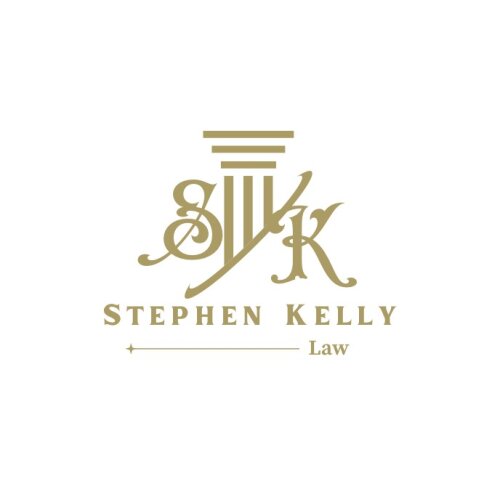Best Real Estate Lawyers in Dublin
Share your needs with us, get contacted by law firms.
Free. Takes 2 min.
Free Guide to Hiring a Real Estate Lawyer
List of the best lawyers in Dublin, Ireland
About Real Estate Law in Dublin, Ireland
Real estate law in Dublin, Ireland is a dynamic field that governs the buying, selling, leasing, and management of properties across the city. Dublin's real estate market is characterized by its vibrant residential, commercial, and mixed-use developments, attracting both local and international interest. Understanding the legal frameworks that underpin these transactions is crucial to navigating potential challenges and ensuring compliance with Irish law.
Why You May Need a Lawyer
Real estate transactions can be complex, involving substantial financial commitments and legal implications. Here are some scenarios where legal assistance might be beneficial:
- Purchasing or selling a property: To ensure the contract is fair and legally binding.
- Lease agreements: To understand the terms and ensure your rights are protected.
- Property disputes: Such as boundary issues, tenant evictions, and neighbor disputes.
- Development and planning permissions: Navigating zoning laws and obtaining necessary consents.
- Inheritance and probate issues: Managing the legal aspects of property transfer following a death.
- Mortgage and re-mortgaging: Understanding the terms and implications of finance agreements.
Local Laws Overview
Dublin's real estate laws are influenced by both local urban development plans and national legislation. Some key aspects include:
- Residential Tenancies Act: This governs the rights and responsibilities of landlords and tenants, aiming to provide protection for both parties.
- Building Control Act: Sets standards for construction quality and safety, ensuring compliance with planning permissions.
- Property Registration Authority: Manages the registration of property, providing a public record of ownership and interests.
- Planning and Development Act: Guides urban planning, land use, and development within Dublin.
- Conveyancing: The legal process of transferring property, requiring due diligence and accuracy to avoid disputes.
Frequently Asked Questions
What is involved in the conveyancing process?
Conveyancing involves the legal transfer of property from seller to buyer. This process includes receiving the contract for sale, investigating the legal title, preparing a settlement, and ensuring the transaction completes smoothly.
Do I need a solicitor when buying property in Dublin?
Yes, engaging a solicitor is essential to ensure all legal aspects of the transaction are handled correctly. They provide guidance on contracts, conduct property investigations, and manage submittals to governmental authorities.
How do I resolve a boundary dispute with my neighbor?
Boundary disputes can be complex, typically requiring examination of deeds and surveys. Consulting a lawyer or a chartered surveyor can provide clarity in interpreting property boundaries and reach an amicable resolution.
What should I know about residential tenancy laws?
Tenancy laws stipulate tenant rights, landlord obligations, rent increases, and the dispute resolution process. It's important for both landlords and tenants to understand these to protect their interests.
How is stamp duty calculated on property in Ireland?
Stamp duty is a tax levied on property transactions. For residential property, this is typically 1% up to €1 million, with 2% applied to amounts above €1 million. Different rates apply to non-residential properties.
Can I legally rent out my property through platforms like Airbnb?
Short-term let regulations have tightened in Dublin, especially in Rent Pressure Zones. Check local laws and obtain necessary permissions before listing your property for short-term rentals.
What are the steps involved in getting planning permission in Dublin?
To obtain planning permission, prepare and submit your application to the local authority, including detailed plans, site maps, and proposed work. Public notices may also be required to inform nearby residents.
How can I check the legal status of a property title?
The Property Registration Authority of Ireland provides access to the Land Register, where you can verify the status of a property title and any registered interests or burdens on it.
What should I consider when drafting a lease agreement?
Ensure clarity on rent terms, responsibilities for repairs, duration, termination clauses, and any restrictive covenants. Consulting a lawyer can help craft a fair and comprehensive agreement.
Are there tax implications for selling my property?
Capital gains tax may be applicable on the profit made from selling property, though certain exemptions and reliefs exist. Sound legal and financial advice can help handle these tax issues effectively.
Additional Resources
Several resources can offer assistance with real estate law needs:
- Citizens Information Board: Provides guidance on housing, rent, and property laws.
- Property Services Regulatory Authority: Oversees property service providers and consumer rights.
- Property Registration Authority of Ireland: Manages land registration and title deeds.
- Residential Tenancies Board (RTB): Offers information on tenancy rights and dispute resolution.
- Dublin City Council Planning Department: Manages planning applications and developments.
Next Steps
If you require legal assistance in real estate, consider the following steps:
- Identify the specific legal issue you are facing.
- Gather all relevant documentation, such as contracts, deeds, leases, or notices.
- Contact a reputable local solicitor specializing in real estate law for advice.
- Research potential solicitors, checking their experience and client reviews.
- Schedule a consultation to discuss your case and explore your legal options.
Legal matters in real estate can benefit significantly from professional guidance to prevent or resolve issues effectively. With the right resources and expert advice, you can navigate the complexities of Dublin's real estate market confidently.
Lawzana helps you find the best lawyers and law firms in Dublin through a curated and pre-screened list of qualified legal professionals. Our platform offers rankings and detailed profiles of attorneys and law firms, allowing you to compare based on practice areas, including Real Estate, experience, and client feedback.
Each profile includes a description of the firm's areas of practice, client reviews, team members and partners, year of establishment, spoken languages, office locations, contact information, social media presence, and any published articles or resources. Most firms on our platform speak English and are experienced in both local and international legal matters.
Get a quote from top-rated law firms in Dublin, Ireland — quickly, securely, and without unnecessary hassle.
Disclaimer:
The information provided on this page is for general informational purposes only and does not constitute legal advice. While we strive to ensure the accuracy and relevance of the content, legal information may change over time, and interpretations of the law can vary. You should always consult with a qualified legal professional for advice specific to your situation.
We disclaim all liability for actions taken or not taken based on the content of this page. If you believe any information is incorrect or outdated, please contact us, and we will review and update it where appropriate.
Browse real estate law firms by service in Dublin, Ireland
Dublin, Ireland Attorneys in related practice areas.















